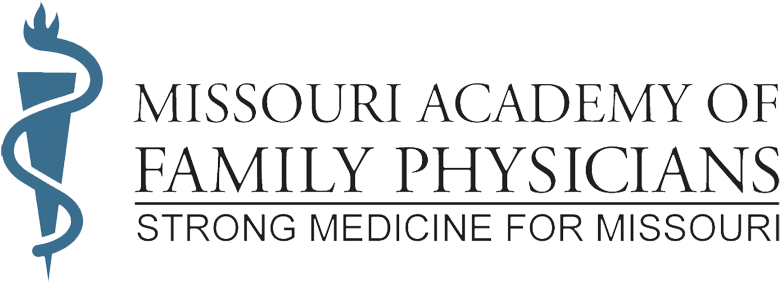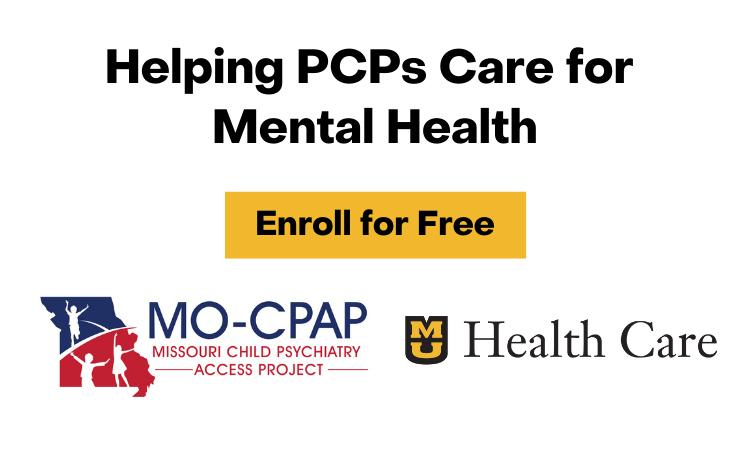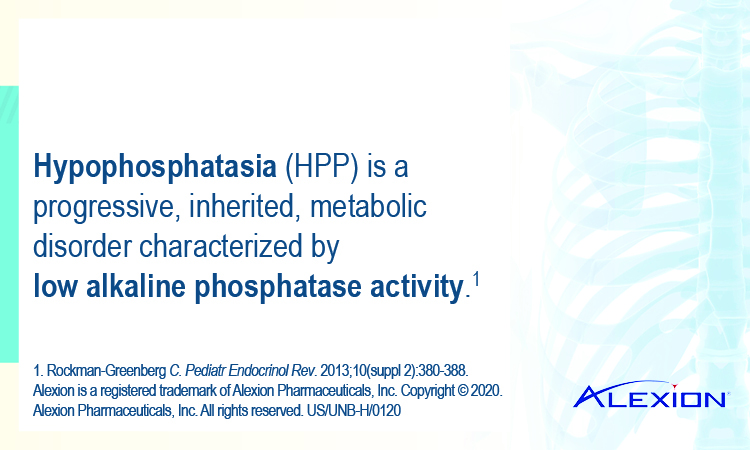St. Louis Chapter President
Active Member
Chesterfield, Missouri
As an actively practicing member of the MAFP, I work for a large, non-profit hospital system in a small office with 2 other Family Physicians, 2 Nurse Practitioners and a full office staff. My medical assistant, Kacie, and I see approximately 20 patients a day and generate yearly RVUs that put me vaguely around the 65% percentile nationally for Family Physicians. I work for a good non-profit that treats me kindly and fairly and I have never regretted my choice to pursue Family Medicine. The bills get paid each month, I get to come home each night to my beautiful wife and our 3 amazing daughters and a minimum of once each day I am humbled and amazed by those that put their trust in my hands. I sometimes complain, sometimes get frustrated, sometimes cry and the other day I had to apologize to a patient after I yelled at him for not taking his diabetes seriously – turns out he heard my message the visit before, he had made changes and not everyone can afford $300 in insulin every month. His response when I apologized – “Hey doc, It’s all good, don’t know where it [went] wrong yesterday and I do need a doctor that cares, so believe me I appreciate it.” Being a Family Doctor makes me a better person.
I read Dynamed Plus® for fun at night, and I truly love talking about the statistics behind breast and prostate cancer screening, but my true passion is caring for people. Family Medicine is hard, but I love reassuring terrified first-time parents that they are naturals and I love helping a teenager with anxiety decide what treatment option is going to make him/her feel, “like myself, but without anxiety,” (which is still one of the coolest things I hear on a regular basis) while also treating her/his acne. I love telling an alcoholic I will be there here for him/her and I love listening to a recently widowed man tell me everything about his wife while we both let a tear run down our cheeks. Oddly, I love helping adults figure out if they “have” ADD, and I love talking about weight management. Sadistically, I don’t really mind addressing 7 issues in a 15 minute visit, though I’m not very good at it and I always run 30+ minutes behind. I am sometimes right, sometimes wrong and sometimes I say and do just plain stupid things. I have found over the last 10 years of doing this that Family Medicine allows me to be me, while giving others the opportunity to teach me to be a better person, and that sounds like a heck of a career to me. Our guidelines change on a regular basis. We haven’t made a pill for everything and we haven’t made counseling affordable and accessible to everyone yet, but I can come to work every day and do my best to convince my patients that I will be honest with them, that I do care, that I’m in it with them, that we will figure something out together.
Bill Fish, MD
MAFP Past President
Life Member
Kansas City, Missouri
Family Medicine is a great profession allowing a positive impact on families and across patient types from birth to death. For me, it has also been a profession allowing flexibility of practice styles that sometimes change through a physician’s life. I loved the relationship with my obstetric patients and it was rewarding to follow individuals from birth through their lives. When I chose to have more time with family, however, I was able to give up obstetrics practice to provide that time. When I chose to have more free time for other pursuits, I was able to focus on office-based medicine and give up inpatient care. When I chose even more free time and time for travel, I was able to coordinate job-sharing with another family doc in my group without sacrificing availability for a slightly more contracted number of patients.
Being able to do adjust for lifestyle in these ways, within the same practice of thirty years, was possible because of the various practice styles available to family physicians. At the end of my career, I transitioned my patients to other doctors within my group and moved to a locum tenens style practice covering for physicians within my hospital organization that took vacations or sabbaticals. This allowed continued access for patients in rural practices while allowing rural docs the flexibility of time away. It also allowed me to maintain skills while taking extended periods away for non-professional self-fulfillment.
Family medicine remains a great profession with great flexibility, allowing us to find balance with our non-professional life demands and goals. This flexibility improves each year as practices become more accommodating to physicians with different scheduling desires, helping to avoid the burnout that seems so prevalent. This expanding flexibility isn’t surprising given the practical outlook of physicians in our specialty.
Misty Todd, MD
MAFP Alternate Resident Director
PGY2, University of Missouri Columbia Family Medicine Residency
I love family medicine because of the people I work with and the patients who become like family! From attendings, to nurses, to co-residents, we are all like-minded in trying to do the best for our patients to help guide them through this very complicated health system of ours. We struggle together to navigate through and ensure that our patients’ needs are met. My patients know that my team works hard for them and in return, they let us help them through some of the most difficult and exciting times in their lives!
Reagan Garber
MS2, Kansas City University of Medicine and Biosciences
Joplin, Missouri
I grew up in a rural community in Arkansas, where I had limited, immediate access to healthcare other than my primary care physician. My experiences showed me that family medicine physicians are able to provide unmatchable patient care. Over the years, I was able to form a patient-physician relationship defined by trust and confidence. I was given a higher quality of care because of that relationship.
Family medicine physicians also have an influence far beyond patient encounters. With the growing prevalence of illness and disease that are influenced by modifiable risk factors, the need for preventative medicine is at an all-time high. By focusing on preventative medicine as well as mental health screenings, physicians can impact the overall wellbeing of an entire community.
As I prepare to begin my health care career, I look forward to building longitudinal relationships with my patients that will solve their immediate health care needs while also equipping them for a healthier future!



